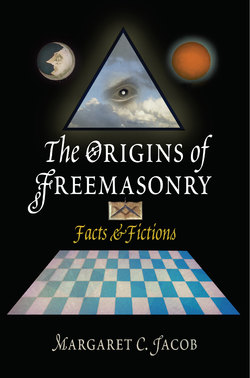The Origins of Freemasonry

Реклама. ООО «ЛитРес», ИНН: 7719571260.
Оглавление
Margaret C. Jacob. The Origins of Freemasonry
Отрывок из книги
The Origins of Freemasonry
Facts & Fictions
.....
A mason of any lodge had to be “of the religion of that country or nation whatever it was,” but the 1723 Constitutions said that “tis now thought more expedient only to oblige [the freemason] to that religion in which all men agree.”26 In deference to the deep religious divisions in Britain, freemasonry endorsed a minimalist creed which could be anything from theism to pantheism and atheism. Not surprisingly, the lodges in England had a high representation of Whigs and scientists, while in Paris at mid-century the freemason Helvétius was a materialist and in Amsterdam, Rousset de Missy was a pantheist. The great political theorist, Montesquieu, also a freemason, was probably some kind of deist. In both London and Amsterdam Jewish names can be found in the lodge records. In France there were lodges for both Protestants and Catholics, indeed even actors, often scorned in polite society, were admitted. In one Paris lodge letters between brothers mention a “Negro trumpeter” in the King’s regimen.27 Rarely do lodge ceremonies, even in Catholic countries, contain overtly Christian language.
When the Catholic Church condemned lodge membership in 1738 it objected that freemasonry constituted a new form of religion. It also condemned frequent elections as being republican.28 For some men freemasonry expressed new beliefs that were tolerant and endorsed practices ultimately at odds with traditional religiosity and monarchical absolutism. The Church’s condemnation only made the lodges more attractive to the secular-minded and the progressive. It is hardly surprising that by 1750 membership in a masonic lodge had come to denote enthusiasm for the new, enlightened ideas, although not necessarily for the materialism and atheism associated with some of the philosophes.
.....